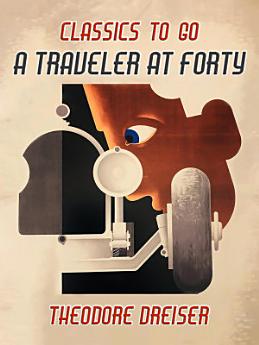A Traveler At Forty
Oct 2021 · Otbebookpublishing
Ebook
467
Pages
family_home
Eligible
info
reportRatings and reviews aren’t verified Learn More
About this ebook
About the author
Theodore Dreiser (1871-1945) stands as a towering figure in American literature, renowned for his unflinching portrayal of the human condition and the stark realities of American life. Born into poverty in Terre Haute, Indiana, Dreiser's early experiences of hardship and struggle profoundly shaped his worldview and literary voice. His works often delve into themes of ambition, desire, and the relentless pursuit of success, reflecting the socio-economic turbulence of the Gilded Age and the early 20th century.Dreiser's literary journey was marked by controversy and censorship, particularly with his novel "Sister Carrie," which faced significant backlash for its candid depiction of a woman's rise to success through morally ambiguous means. Despite initial resistance, the novel eventually gained recognition for its groundbreaking realism and complex characterizations.A pioneer of naturalism, Dreiser's influence extended to contemporary writers like Sinclair Lewis and John Steinbeck, who admired his commitment to depicting life's harsh truths without romanticization. His works challenged the prevailing moral norms and highlighted the often-brutal forces of capitalism and industrialization.Dreiser was also a vocal advocate for social justice, aligning himself with progressive causes and critiquing the inequities of American society. His fearless exploration of taboo subjects and his dedication to social realism cemented his legacy as a revolutionary literary figure who dared to confront the uncomfortable truths of his time.
Rate this ebook
Tell us what you think.
Reading information
Smartphones and tablets
Install the Google Play Books app for Android and iPad/iPhone. It syncs automatically with your account and allows you to read online or offline wherever you are.
Laptops and computers
You can listen to audiobooks purchased on Google Play using your computer's web browser.
eReaders and other devices
To read on e-ink devices like Kobo eReaders, you'll need to download a file and transfer it to your device. Follow the detailed Help Center instructions to transfer the files to supported eReaders.







